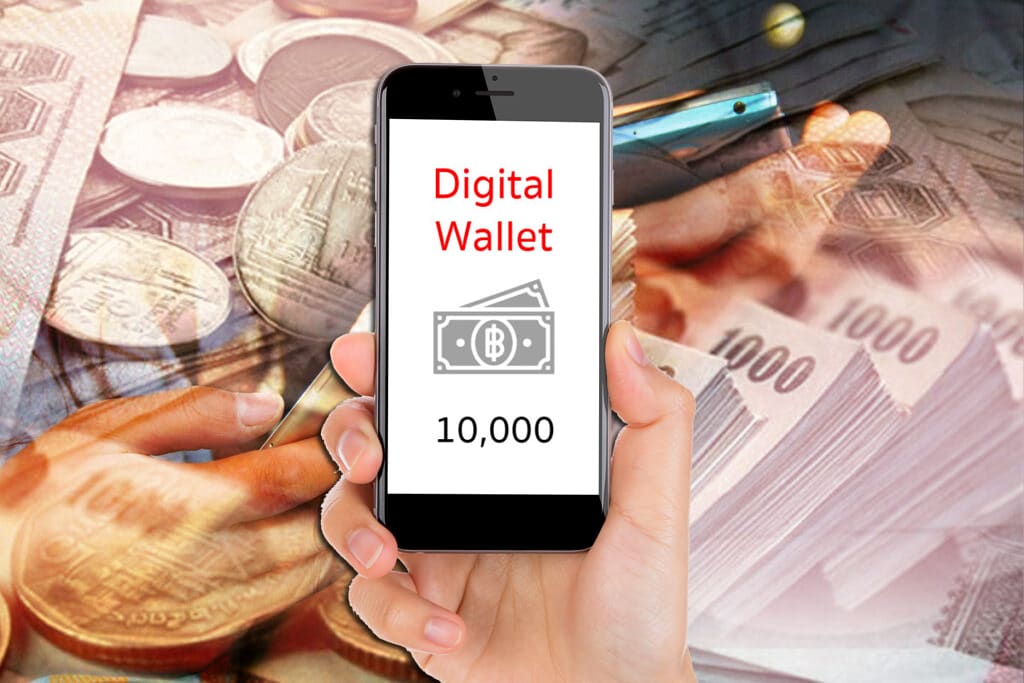On its inaugural day, ambitious Thailand Digital Wallet Program encountered significant technical setbacks, according to Reuters. The program, designed to distribute 10,000 baht (approximately $282) to eligible Thai citizens, was met with overwhelming demand that crashed the online registration portal. The Thailand Digital wallet program portal struggled under the simultaneous surge of applicants, leading to widespread frustration and disruption.

Technical Issues on Day One
The Thailand Digital Wallet Program was launched with high expectations, but the initial response revealed substantial flaws in its technical infrastructure. By early afternoon of the opening day, 10.5 million people had managed to complete their registration. However, a considerable number of applicants faced issues accessing the portal or receiving the necessary text message passcodes to finalize their applications. These technical difficulties have raised concerns about the system’s ability to handle such high volumes of traffic, especially for a program of this scale.
High Demand Outpaces System Capacity
The massive interest in the Thailand Digital Wallet Program underscored the significant public demand for digital financial solutions. However, the system’s inability to cope with this demand highlights the challenges of implementing large-scale digital projects, particularly those involving financial distributions to a significant portion of a country’s population. The program’s initial hiccups serve as a stark reminder of the complexities involved in rolling out major digital initiatives.

Prime Minister Srettha Thavisin addressed the issues, acknowledging that technical problems are not uncommon on launch days. He reassured the public that the government is actively working to resolve these problems, underscoring their commitment to the program’s success. The government views the digital wallet initiative as a vital tool for stimulating economic growth and supporting citizens, particularly in light of the current economic challenges.
Economic Context and Government Plans
Thailand’s economy has been grappling with high levels of family debt and sluggish consumer spending. In response, the government has launched the 500 billion baht ($14 billion) Thailand Digital Wallet Program as a cornerstone of its economic revival strategy. By providing direct financial support to citizens, the program aims to boost local spending and support economic recovery. The program is projected to contribute between 1.2 to 1.8 percentage points to Thailand’s economic growth in the coming year.
Implementation Challenges and Economic Impact
The successful implementation of the Thailand Digital Wallet Program faces several hurdles. The government must address the technical issues that have plagued the initial registration phase and ensure that the program operates smoothly going forward. The initiative, set to go live in two months, allows participants to spend their allocated funds at a variety of local businesses, from large shopping malls to small vendors. This broad range of spending options is designed to maximize the program’s economic impact across different sectors of the Thai economy.

The government anticipates that approximately 45 million out of 50 million eligible Thai residents will participate in Thailand Digital Wallet program. The high level of expected engagement underscores the potential impact of the initiative on the national economy. However, it also raises questions about the infrastructure and systems needed to support such a massive financial distribution effort.
Debate and Criticism
While the Thailand Digital Wallet Program has garnered support from many quarters, it has also faced criticism. Some economists and former central bank governors have expressed concerns about the program’s fiscal implications and its long-term economic effects. These criticisms highlight the need for careful consideration of large-scale financial interventions and their potential consequences.
Overcoming Obstacles and Future Prospects
The introduction of the Thailand Digital Wallet Program marks a significant step towards enhancing economic growth and providing support during challenging times. Despite the initial technical difficulties, the program’s ambitious scope and potential benefits remain promising. The government’s ability to address the technical problems swiftly and effectively will be crucial to the program’s success.
As the program moves forward, it will be important for the government to maintain transparency and communication with the public while working to resolve the initial issues. Ensuring a smooth rollout and maximizing the economic benefits of the program will be key to its long-term success.
The Thailand Digital Wallet Program represents a bold experiment in digital financial distribution and economic stimulation. Its progress will be closely watched by economists, lawmakers, and governments worldwide. As Thailand navigates the challenges of this pioneering initiative, it may set a precedent for similar digital financial schemes in other countries. For ongoing updates and insights into developments in the financial and crypto world, stay tuned to TheBITJournal.




























